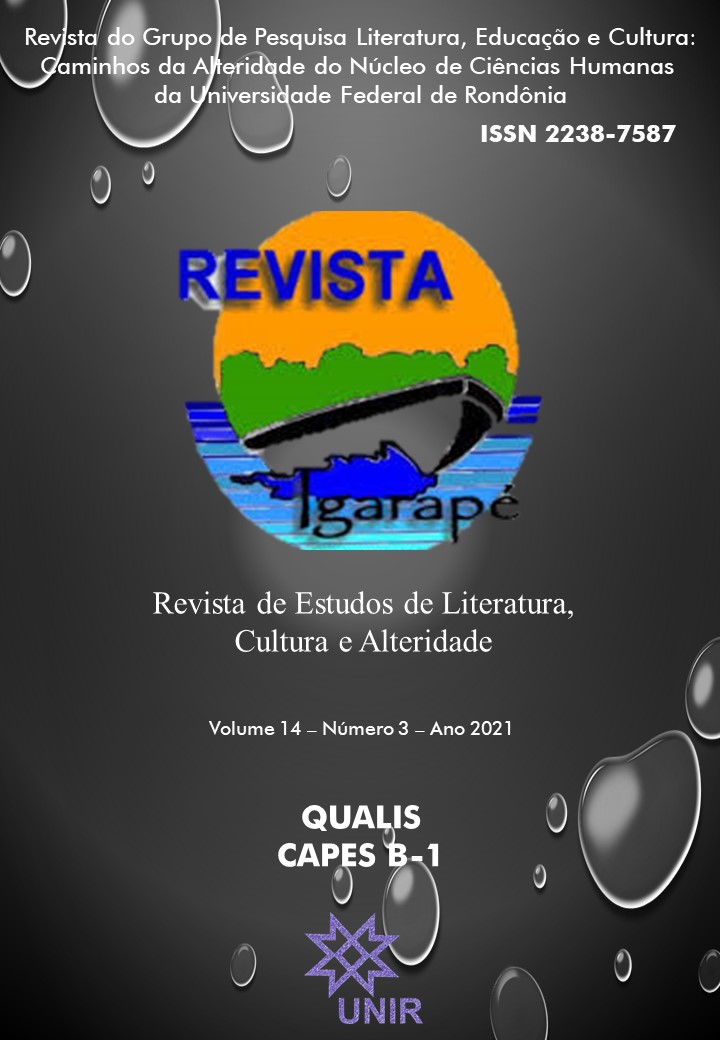RACISMO ESTRUTURAL NO CONTO “MARIA”, DE CONCEIÇÃO EVARISTO
DOI:
https://doi.org/10.47209/2238-7587.v.14.n.3.6566Resumo
RESUMO: O presente trabalho tem como objetivo analisar o conto “Maria”, presente no livro Olhos d’Água, da escritora Conceição Evaristo. A pesquisa, construída consoante método bibliográfico e analisada pelo viés da teoria pós-colonial, buscou compreender como o racismo, estruturado socialmente desde a colonização do Brasil, está presente no texto. A autora escreve de um lugar cujo espaço é majoritariamente masculino e maculado de preconceito racial, que emerge no conto e conduz a personagem Maria, mulher, negra, pobre e mãe solo, a não ter chance de defesa, pagando com a própria vida pelo fato de ter nascido negra, de ter nascido mulher também. Qualquer mulher negra e pobre poderia ser Maria. Por isso, levar sua voz adiante tem o objetivo de expor o que Maria não pode dizer nem explicar: que o racismo, o machismo, a exclusão social matam. No conto, a angústia dos que vivem à margem da sociedade está por toda parte, no entanto, em “Maria”, o grito não é o dela, alguém sequer grita por ela, gritam contra ela e contra a verdade que ela clama.
ABSTRACT: This work aims to analyze the tale “Maria”, which is part of the book Olhos d’Água, by the writer Conceição Evaristo. The research, built according to the bibliographic method and analyzed from the perspective of post-colonial theory, sought to understand how racism, socially structured since the colonization of Brazil, is present in the text. The author writes from a place whose space is mostly male and tainted by racial prejudice, which emerges in the story and leads the character Maria, woman, black, poor and single mother, to have no chance of defense, paying with her own life for the fact of being born black, of being born a woman too. Any black and poor woman could be Maria. For this reason, taking her voice forward has the objective of exposing what Maria cannot say or explain: racism, machismo, social exclusion kill. In the tale, the anguish of those who live on the margins of society is everywhere, however, in “Maria”, the scream is not hers, someone does not even screams for her, they scream against her and against the truth she cries out.

